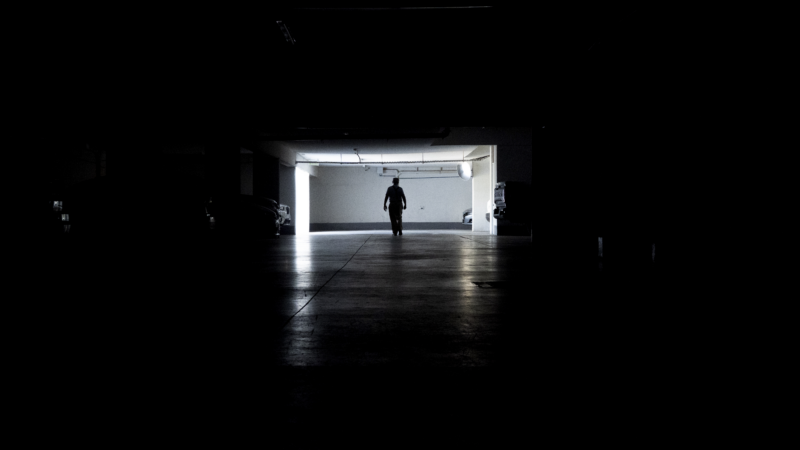A sweeping power blackout leaves most of Chile in darkness
SANTIAGO, Chile — A sweeping blackout plunged most of Chile into darkness Tuesday, stranding commuters, knocking the internet offline and paralyzing businesses and daily life as officials scrambled to restore power.
The government declared a state of emergency alongside a mandatory nighttime curfew that will last until 6 a.m. Wednesday.
Internet and mobile phone services blinkered offline. The world’s largest copper producer suspended mining operations. People complained of water shortages as pumps running on electricity stopped working. Emergency generators helped hospitals and government offices continue operating.
Speaking after sundown, Interior Minister Carolina Tohá warned of a catastrophe even as the actual cause remained shrouded in confusion.
“Our first concern, and the reason for this announcement, is to ensure people’s safety,” she said, announcing that the government was sending security forces to the dark streets to control traffic and rein in chaos. “Obviously, this was something no one planned for.”
Around 10 p.m., more than five hours after the outage began, at least 7 million people still had no electricity, and none of the 14 affected regions had completely recovered power.
The National Electrical Coordinator, Chile’s grid operator, said a disruption had occurred in a high-voltage backbone transmission line that carries power from the Atacama Desert of northern Chile to the capital of Santiago in the country’s central valley.
It did not say what actually caused the disruption that shut down much of the grid, from the northernmost Chilean port of Arica to the southern Los Lagos agricultural region.
All over the nation of 19 million, traffic lights went dark, soccer matches were called off, classes were canceled and cultural events postponed. Businesses, from restaurants and bars to movie theaters, lost money.
Some people recalled the terror of being trapped in subway cars. Others, especially older adults, feared that they would not be able to leave apartment buildings because elevators were out of order.
“Everything has stopped, there’s chaos,” said Jorge Calderón, a writer and resident of Santiago. There was nothing to keep refrigerated food from spoiling in the Southern Hemisphere summer heat, he added.
Chile’s national disaster response service, Senapred, said the disruption in the power supply caused an outage across 14 of the country’s 16 regions, including Santiago, a city of some 8.4 million people, where authorities said there would be no subway service until further notice.
Tohá said hospitals, prisons and government buildings were using backup generators to keep essential equipment operating. Officials said they were evacuating passengers from darkened tunnels and subway stations in Santiago and elsewhere in the country, including the coastal tourist hotspot of Valparaiso.
Videos on social media shared from across Chile, a long ribbon of a country stretching 4,300 kilometers (over 2,600 miles) along the southern Pacific coast, showed mass confusion at intersections with no functioning traffic lights, people having to use their mobile phones as torches in the underground metro and police dispatched to help evacuate buildings.
Transport Minister Juan Carlos Muñoz urged people to stay home, saying it’s “not a good time to go out since we have a transport system that is not operating normally.” At the very most, he said, just 27% of city traffic lights are working.
Authorities at Santiago International Airport said terminals had switched to emergency power but warned that “some flights could be affected.”
Chile’s state-owned copper mining company Codelco, said the power outage had “affected all operations,” without elaborating.
Baseline knowledge: Where tennis comes from and how the game has changed
Recent years have seen an upswing in people playing tennis (or at least dressing like it). But it's not just a phase. The sport — at least some version of it — has been around since medieval times.
Canceled grants get the spotlight at a Capitol Hill ‘science fair’
On Tuesday, scientists held an event organized by House Democrats in which they stood in front of posters outlining their work — and the federal cuts that now threaten it.
In Texas, a major search effort is being led by the father of a flood victim
In Kerr County, Texas, Thad Heartfield is leading nearly 100 volunteers searching for flood victims. For him, this mission is personal. His son and three of his son's friends disappeared in the flood.
After quitting antidepressants, some people suffer surprising, lingering symptoms
The symptoms can include nerve pain, emotional numbness and sexual dysfunction and can last for years after stopping the drugs. Patients are pushing for recognition and more research.
Confused about where things stand with Trump’s tariffs? Here’s a handy primer
President Trump has announced — but postponed the effective date for — higher tariffs once again. Here's what to know about the latest on his tariff policy.
How a broken nose kickstarted Diego Luna’s star-making run with the USMNT
The 21-year-old Real Salt Lake midfielder, with his bleached hair and dozens of tattoos, stands out on the soccer field. But it's his attitude that has won praise from his coach, teammates and fans.









